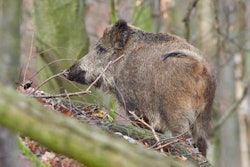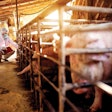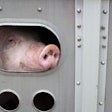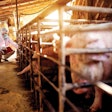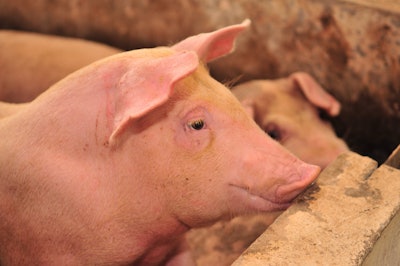
In late February, presence of the African swine fever (ASF) virus was detected in a small herd of domestic pigs in northern Mongolia.
This is according to a notification recently received from the national veterinary agency by the World Organisation for Animal Health (WOAH). It records the deaths of four out of seven animals at the premises in the province of Selenge. The remaining swine were culled to prevent further spread of the infection.
Two previous outbreaks in this series occurred in late July and early August 2023. Affected were two larger herds described as “backyards” in two adjacent provinces to the west of Selenge, but more than 100 kilometers from the latest outbreak.
No ASF cases were reported in Mongolia between March 2019 and July 2023. The three most recent outbreaks have directly impacted a total of 358 domestic swine.
Philippines farmers call for ceiling price for pork
The Philippines Chamber of Agriculture and Food has called on the authorities to set a maximum retail price for pork, reports Philippines Star.
Pig meat supplies have been limited in some areas of the country due to ASF outbreaks and the resulting restrictions on movements of animals and meat around the country due to the risk of transmitting the infection further.
According to this source, retail prices have risen as high as PHP420 (US$7.55) per kilo in some areas, while farm-gate prices are PHP140-160.
In order to support efforts to bring ASF under control in the country, the president of the organization urged the national authorities to reach agreement over ASF vaccination. According to him, commercial pig companies do not favor vaccination because of likely restrictions on their exports. Instead, they rely on strict biosecurity measures to prevent outbreaks. However, he forecasts that, without vaccination, the proportion of the nation’s pigs kept in backyard herds could fall from 60% to as low as 30%.
One week ago, 145 live pigs were delivered from an ASF-free province on Mindanao to a city in Central Visayas in order to stabilize pork prices. According to the Philippine News Agency, the animals were delivered directly to the slaughterhouse. A further consignment was planned for the next week.
Latest update from the Bureau of Animal Industry suggests a slight easing in the ASF situation across the country.
As of March 8, active cases are logged in 11 provinces in seven regions of the country, a reduction of one in each measure compared with the previous version dated February 20. Two regions — Caraga and Central Visayas — are no longer considered to have active ASF cases, while Western Visayas has returned to that status.
Majority of the communities dealing with ongoing ASF outbreaks are in the western island region of Mimaropa, and the Bicol region, which covers the southeast of Luzon and adjacent islands.
ASF developments elsewhere in Asia
So far this year, 74 ASF outbreaks have occurred in three provinces of Indonesia, according to ISIKHANAS (as of March 18). Affected have been 344 swine.
Worst affected has been East Nusa Tenaggara, location of 60 of the outbreaks and 164 animals. On the island of Borneo, first cases of 2024 have been confirmed in West Kalimantan province, and the outbreak total for South Sulawesi has risen to 11.
In South Korea, the number of ASF cases in wild boar has risen to 3,813. This represents the total since the country’s first outbreak in September 2019, according to Pigs & People (as of March 18).
Compared with the situation on March 5, the figure has increased by 82, with the majority of new wild boar cases in the eastern province of North Gyeongsang. The nation’s total outbreaks in domestic pigs is unchanged at 40.
A second ASF outbreak of the year has been confirmed in Bhutan, according to the latest update on the ASF situation in Asia from the United Nations’ Food and Agriculture Organization (FAO). It occurred at the end of February in the southwestern district of Chhukha.
Earlier in the month, the country’s first outbreak of 2024 was notified to WOAH in Pemagatshel, a district in the southeast of Bhutan.
As of February 23, FAO reports there are 15 provinces in Vietnam with ASF cases confirmed over the previous 21 days. Worst affected have been Hoa Binh in northern Vietnam, and the central province of Nghe An, and Ca Mau in the south. Also in southern Vietnam, first cases of 2024 have been confirmed in Tra Vinh province.
View our continuing coverage of the global African swine fever situation.




